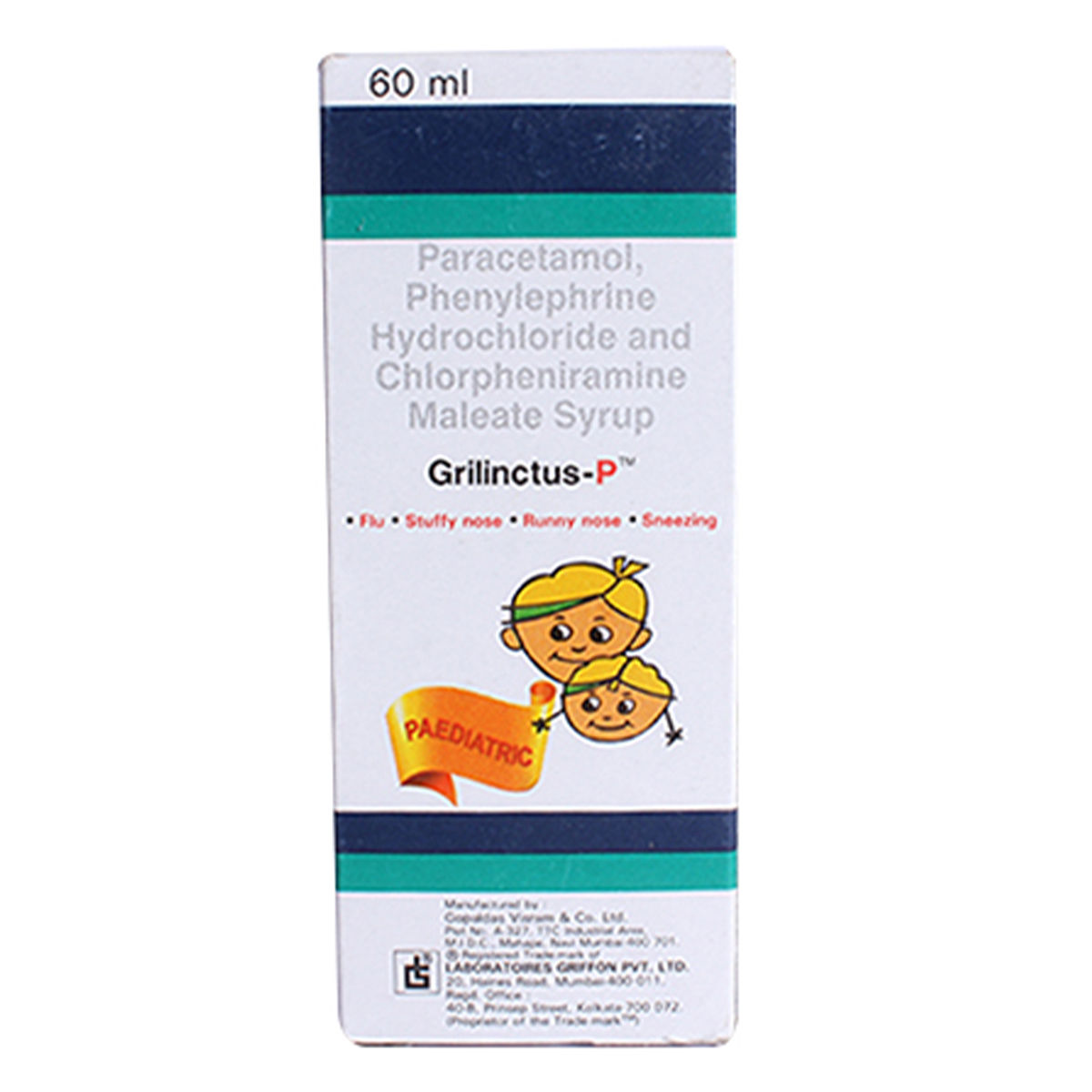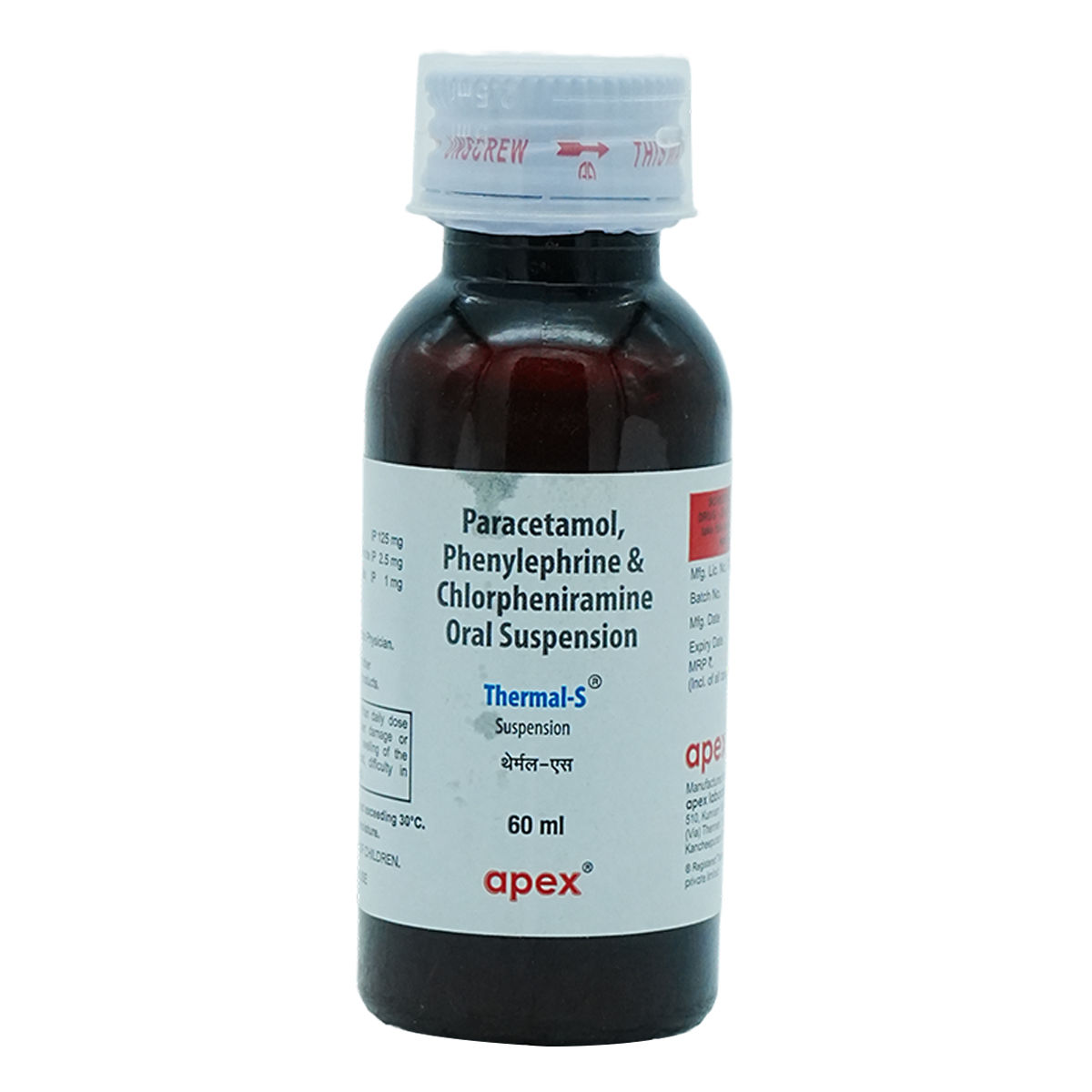Grilinctus Paediatric Syrup 60 ml
Grilinctus Paediatric Syrup is used to treat symptoms of the common cold and allergies like sneezing, runny/stuffy nose, fever, headache, body pains, congestion, or watery eyes. It works by blocking the action of histamine, a substance responsible for causing allergic reactions. It also shrinks the blood vessels in the nasal passage. Thus, it provides relief from congestion and decreases excess mucus production. Some people may experience drowsiness, nervousness, headache, dizziness, insomnia (difficulty in falling or staying asleep), blurred vision, constipation and dry mouth. Before taking this medicine, you should tell your doctor if you are allergic to any of its components or if you are pregnant/breastfeeding, and about all the medications you are taking and pre-existing medical conditions.
₹80.1*
MRP ₹89
10% off
₹75.65*
MRP ₹89
15% CB
₹13.35 cashback(15%)
Free Delivery
With Circle membership
(Inclusive of all Taxes)
This offer price is valid on orders above ₹800. Apply coupon PHARMA10/PHARMA18 (excluding restricted items)
Know Your Delivery Time
Provide Delivery Location



Selected Pack Size:60 ml
60 ml ₹80.1
(₹1.34 / 1 ml)
In Stock
100 ml ₹80.1
(₹0.8 / 1 ml)
In Stock
Available Offers
 Prescription drug
Prescription drugWhats That

Secure Payment

India's Most Trusted Pharmacy

Genuine Products
Manufacturer/Marketer :
Consume Type :
Return Policy :
Expires on or after :
About Grilinctus Paediatric Syrup
Grilinctus Paediatric Syrup is used to treat symptoms of the common cold and allergies like sneezing, runny/stuffy nose, fever, headache, body pains, congestion, or watery eyes. The common cold is a respiratory illness affecting the nose and throat. It is mostly caused by viruses known as 'rhinovirus'. The virus enters the body through the nose, mouth or eyes and spreads easily through droplets in the air when the person who is sick sneezes, coughs or talks.
Grilinctus Paediatric Syrup is a combination of three drugs, namely: Paracetamol (mild analgesic and antipyretic), Phenylephrine (decongestant) and Chlorpheniramine (antihistamine/antiallergic). Paracetamol is an analgesic (relieves pain) and antipyretic (reduces fever) that works by inhibiting the production of certain chemical messengers in the brain known as prostaglandins that are responsible for pain and fever. Phenylephrine belongs to the class of decongestants that works by shrinking the blood vessels in the nasal passage. Thus, it provides relief from congestion and decreases excess mucus production. Chlorpheniramine belongs to the class of antihistamines (anti-allergic drugs) that works by blocking the action of histamine, a substance responsible for causing allergic reactions. It helps to provide relief from symptoms of allergies such as sneezing, running nose, watery eyes, itching, swelling, and nasal congestion.
Take Grilinctus Paediatric Syrup as prescribed. Your doctor will recommend you how often you take Grilinctus Paediatric Syrup based on your medical condition. Some people may experience drowsiness, nervousness, headache, dizziness, insomnia (difficulty in falling or staying asleep), blurred vision, constipation and dry mouth. Most of these side effects of Grilinctus Paediatric Syrup do not require medical attention and gradually resolve over time. However, if the side effects persist or worsen, please consult your doctor.
If you are allergic to Grilinctus Paediatric Syrup or any other medicines, please tell your doctor. If you are pregnant, it is advised to inform your doctor before using Grilinctus Paediatric Syrup. Do not use Grilinctus Paediatric Syrup in breastfeeding mothers without a doctor’s advice as it may be excreted in breast milk and cause harm to the baby. Grilinctus Paediatric Syrup is not recommended for children below 4 years. Please do not take more than the prescribed dose of Grilinctus Paediatric Syrup as it may cause liver damage and can be lethal. If you have high blood pressure, diabetes, glaucoma, hyperthyroidism (overactive thyroid), chronic bronchitis, asthma, chronic obstructive pulmonary disease (COPD), blockage in stomach or intestines, enlarged prostate gland, pheochromocytoma (tumour in the adrenal glands), kidney, liver, heart or urinary problems, inform your doctor before taking Grilinctus Paediatric Syrup.
Uses of Grilinctus Paediatric Syrup
Directions for Use
Medicinal Benefits
Grilinctus Paediatric Syrup is a combination of three drugs: Paracetamol, Phenylephrine and Chlorpheniramine. Paracetamol is a mild analgesic (relieves pain) and antipyretic (reduces fever) that works by inhibiting the production of certain chemical messengers in the brain known as prostaglandins that are responsible for pain and fever. Phenylephrine belongs to the class of decongestants that work by contracting and narrowing the blood vessels. Thus, it provides relief from congestion and decreases mucus production. Chlorpheniramine is an antihistamine (anti-allergic drug) that works by blocking the action of histamine, a substance responsible for causing allergic reactions. It helps to provide relief from symptoms of allergy such as sneezing, running nose, watery eyes, itching, swelling, and congestion or stiffness.
How Grilinctus Paediatric Syrup Works
Storage
Side Effects of Grilinctus Paediatric Syrup
- Drowsiness
- Nervousness
- Headache
- Dizziness
- Insomnia (difficulty in falling or staying asleep)
- Blurred vision
- Constipation
- Dry mouth
What if I have taken an overdose of Grilinctus Paediatric Syrup
Drug Warnings
If you are allergic to Grilinctus Paediatric Syrup or any other medicines, please tell your doctor. If you are pregnant, it is advised to inform your doctor before using Grilinctus Paediatric Syrup. Do not use Grilinctus Paediatric Syrup in breastfeeding mothers without doctor’s advice as it may be excreted in breast milk and cause harm to the baby. Grilinctus Paediatric Syrup is not recommended for children below 4 years. Please do not take more than the prescribed dose of Grilinctus Paediatric Syrup as it may cause liver damage and can be lethal. If you have high blood pressure, diabetes, glaucoma, hyperthyroidism (overactive thyroid), chronic bronchitis, asthma, chronic obstructive pulmonary disease (COPD), blockage in stomach or intestines, enlarged prostate gland, pheochromocytoma (tumour in the adrenal glands), kidney, liver, heart or urinary problems, inform your doctor before taking Grilinctus Paediatric Syrup.
Drug-Drug Interactions
Drug-Drug Interactions
Login/Sign Up
Taking Furazolidone with Grilinctus Paediatric Syrup 60 ml can cause an increase in high blood pressure.
How to manage the interaction:
Taking Furazolidone with Grilinctus Paediatric Syrup 60 ml is not recommended, it can be taken if prescribed by the doctor. However, if you experience sudden and severe headache, blurred vision, confusion, seizures, chest pain, nausea or vomiting, sweating, lightheadedness, fainting, sudden numbness or weakness (especially on one side of the body), speech difficulties, fever, consult the doctor immediately. It is advised to use Grilinctus Paediatric Syrup 60 ml only after 14 days of stopping Furazolidone.
Taking Grilinctus Paediatric Syrup 60 ml with Propofol may lead to increased levels of Grilinctus Paediatric Syrup 60 ml leading to side effects like high blood pressure.
How to manage the interaction:
Taking Grilinctus Paediatric Syrup 60 ml with Propofol is not recommended, but it can be taken if prescribed by the doctor. Do not discontinue the medications without consulting a doctor.
Co-administration of Grilinctus Paediatric Syrup 60 ml with Sevoflurane can increase the levels of Grilinctus Paediatric Syrup 60 ml and lead to side effects.
How to manage the interaction:
Taking Grilinctus Paediatric Syrup 60 ml with Sevoflurane is not recommended, it can be taken if prescribed by the doctor. Do not discontinue the medications without consulting a doctor.
Taking Tranylcypromine with Grilinctus Paediatric Syrup 60 ml can increase the risk of high blood pressure.
How to manage the interaction:
Taking Tranylcypromine with Grilinctus Paediatric Syrup 60 ml is not recommended, but can be taken together if prescribed by a doctor. However, consult a doctor if you experience severe headache, blurred vision, confusion, seizures, chest pain, nausea or vomiting, sudden numbness or weakness (especially on one side of the body), speech difficulties, fever, sweating, lightheadedness, and fainting Do not discontinue any medications without consulting a doctor.
Co-administration of Selegiline with Grilinctus Paediatric Syrup 60 ml together can raise blood pressure.
How to manage the interaction:
Taking Selegiline with Grilinctus Paediatric Syrup 60 ml is not recommended, it can be taken together if prescribed by a doctor. However, consult a doctor immediately if you experience any symptoms such as severe headache, blurred vision, confusion, fits, chest pain, nausea or vomiting, sudden numbness or weakness (especially on one side of the body), speech difficulties, fever, sweating, lightheadedness, and/or fainting Do not discontinue any medications without consulting a doctor.
Taking Grilinctus Paediatric Syrup 60 ml and Potassium citrate (in tablet or capsule form) together can increase the risk of stomach ulcers, bleeding, and gastrointestinal injury.
How to manage the interaction:
Taking Grilinctus Paediatric Syrup 60 ml with Potassium citrate is not recommended as it can lead to an interaction, it can be taken if prescribed by the doctor. However, if you experience any symptoms such as severe stomach pain, bloating, lightheadedness or dizziness, nausea, vomiting (especially with blood), decreased hunger, or dark, tarry stools, consult the doctor immediately. Do not discontinue any medications without a doctor's advice.
Taking Grilinctus Paediatric Syrup 60 ml and Potassium chloride (in tablet or capsule form) together can increase the risk of stomach ulcers, bleeding, and gastrointestinal injury.
How to manage the interaction:
Taking Grilinctus Paediatric Syrup 60 ml with Potassium chloride it not recommended as it can lead to an interaction, it can be taken if your doctor has prescribed it. However, if you experience any symptoms such as severe stomach pain, bloating, lightheadedness or dizziness, nausea, vomiting (especially with blood), decreased hunger, or dark, tarry stools, consult the doctor. Do not discontinue any medications without a doctor's advice.
Co-administration of ketamine and Grilinctus Paediatric Syrup 60 ml may decrease the effectiveness of Ketamine which could result in a higher blood level.
How to manage the interaction:
Although taking Ketamine and Grilinctus Paediatric Syrup 60 ml together can evidently cause an interaction, it can be taken if a doctor has suggested it. If you're feeling very sleepy or having trouble breathing, it's important to contact your doctor right away. Do not stop using any medications without a doctor's advice.
Co-administration of Grilinctus Paediatric Syrup 60 ml and Leflunomide may increase the risk of liver problems.
How to manage the interaction:
Although there is a possible interaction between Grilinctus Paediatric Syrup 60 ml and Leflunomide, they can be taken together if prescribed by a doctor. However, if you experience fever, chills, joint pain or swelling, unusual bleeding or bruising, skin rash, itching, less desire to eat, fatigue, nausea, vomiting, abdominal pain, or yellowing of the skin or eyes, contact a doctor immediately. Do not discontinue any medications without consulting a doctor.
Co-administration of Mipomersen with Grilinctus Paediatric Syrup 60 ml may increase the risk or severity of liver injury.
How to manage the interaction:
There may be a possibility of interaction between Grilinctus Paediatric Syrup 60 ml and Mipomersen, but it can be taken if prescribed by a doctor. Do not stop using any medications without talking to a doctor.
Drug-Food Interactions
Drug-Food Interactions
Login/Sign Up
Diet & Lifestyle Advise
Wash your hands with soap and water regularly to prevent the spread of germs.
Eat plenty of foods rich in good bacteria like yoghurt to improve overall health.
Drink plenty of fluids to avoid dehydration.
Gargle with salt water for relief from sore throat.
Avoid consumption of alcohol with Grilinctus Paediatric Syrup as it may cause tiredness, drowsiness or lack of concentration.
Habit Forming
Therapeutic Class
Grilinctus Paediatric Syrup Substitute

Flucold Oral Drops 15 ml
₹3.81per tabletNoblok Drops 15 ml
₹4.62per tabletGrilinctus Paediatric Syrup 100 ml
by AYUR
₹0.80per tabletThermal-S Oral Suspension 60 ml
₹0.91per tabletZincold Drops 15 ml
₹4.68per tablet
Product Substitutes
Alcohol
Unsafe
Avoid consumption of alcohol with Grilinctus Paediatric Syrup as it may increase the risk of liver damage and cause increased drowsiness, dizziness or difficulty in concentrating. Please consult a doctor before consuming alcohol with Grilinctus Paediatric Syrup.
Pregnancy
Caution
The safety of Grilinctus Paediatric Syrup in pregnant women is unknown. Therefore, it is given to pregnant women only if the doctor thinks benefits outweigh risks.
Breast Feeding
Caution
Grilinctus Paediatric Syrup may be excreted in breast milk, and cause harm to the baby. Besides this, Grilinctus Paediatric Syrup may also slow milk's production, so it is better to contact a doctor before a lactating mother takes it.
Driving
Caution
Grilinctus Paediatric Syrup may cause blurred vision or impair thinking in some people. Therefore, drive only if you are alert after taking Grilinctus Paediatric Syrup.
Liver
Caution
Take Grilinctus Paediatric Syrup with caution, especially if you have a history of Liver diseases/conditions. The dose may be adjusted by your doctor as required.
Kidney
Caution
Take Grilinctus Paediatric Syrup with caution, especially if you have a history of Kidney diseases/conditions. The dose may be adjusted by your doctor as required.
Children
Caution
Grilinctus Paediatric Syrup is not recommended for children below 4 years of age. However, please consult a doctor before giving Grilinctus Paediatric Syrup to children.
FAQs
Country of origin
Manufacturer/Marketer address
Disclaimer
Author Details
We provide you with authentic, trustworthy and relevant information

















